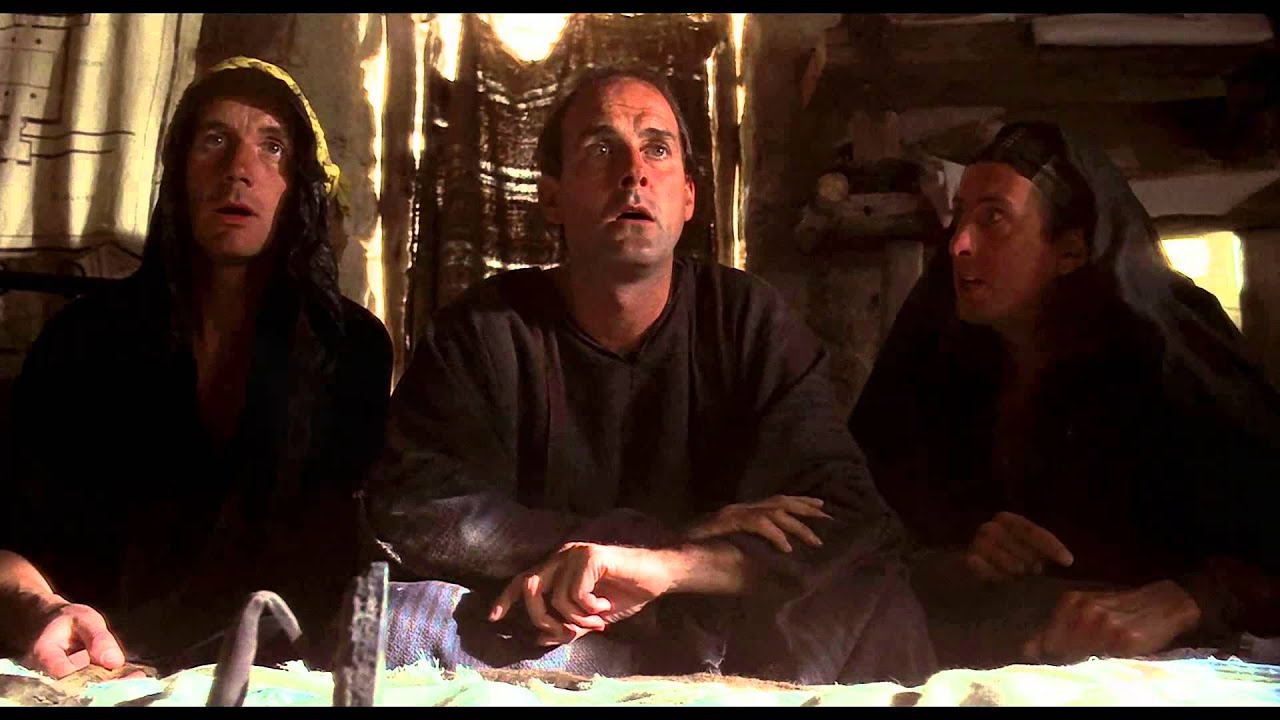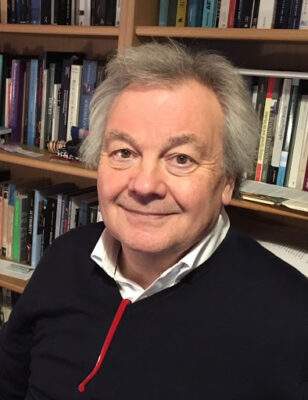At the outset, I want to state that I do believe that COVID-19 is a serious health, social, economic and moral problem. COVID-19 exists and can bring huge sorrow and suffering. It is real, and it is discriminatory. It finds the injustices in our society of poverty and ethnicity and exploits them in its destructive ways. The palliative of a vaccine will disguise the underlying reason for this and possibly all pandemics, but the solution is change: massive change in our societies to liberate people to be themselves, to be individuals and remove the shackles of being the same.
During the lockdown period, I decided to think positively along the lines of ‘what did the pandemic ever do for us?’ with a nod to Monty Python’s ‘Life of Brian’ and, as you will see, failed! For many, the COVID-19 pandemic has brought heroic moments of kindness, of empathy and of caring, countered by untruths, power-grabbing, insensitivity and bad faith. Certainly, instances of the bad are becoming more prevalent as the impact of the more compassionate acts fades into familiarity. What the pandemic has done, I believe, is to highlight for many the need for companionship, friendship and love in a very personal way and often in ways that transcend the ability of our technological age of science to satisfy. Like some operantly-trained animal, our suppressed behaviours are controlled, and once the reinforcement is discontinued or modified, our suppressed self-interested behaviours rebound to levels which exceed those before the emergence of COVID-19. Most of us keep doing what we understand of the directives of control that have been imposed for our benefit (very difficult in the UK to understand what these are). However, there are some that ignore any obligation to others, intent on gathering to drink and party (yes, I am an old, grumpy man) ignorant in their immunity at best and uncaring at worst for the damage they can do to others.
The key question for me, from the earliest precautionary lockdowns, has been what is the impact of the imposed technology-controlled notions of being on our moral relationship with those ‘deniable others’? And then if we should exit lockdown suppression what, if anything, will change in the new normal? Certainly, forms of technology which are harnessed to help humanity achieve are valuable and, in that, the development of vaccines can be one technology-driven activity worthy of note. However, exploitation by the privileged is simply exaggerated if vaccines are not provided patent-free, and nations buy up supplies just because they might need them and leave others needing therapy or immunisation wanting because of their greed and the self-interest of others: white middle classes to the lifeboats first?
Being locked away from the outside world feeds images of close friends and family through an electronic representation of them, prevented from testing their existence other than through the collection of pixels that configure a reality we have come to accept as real and feed images of a world variously winning, defeating and surrendering to the enemy of COVID-19. We are encouraged to go about our lives in these technological cocoons, losing familiarity with other ways of being, captured in a Heideggerian cave, waiting, not to be liberated but to accept the new normal. Encouraged by the ascetic of the present through the lens of political self-interest, leaves us entrapped in the same delimiting environment, to be motivated to practise restraint by how difficult it is for those who make decisions to keep us in such servitude yet who are exempt because of the pain they bear for us. When we are in need to gather, to break out from our technological, enforced isolation, we are chastened and sent deeper in the cave to learn the lessons of conformance.
If this is not sufficient, we are subjected to the ‘the games,’ where those forced into service of gladiatorial harmony fight for our pleasure on the battlefield of team sports, or we are fed past recordings, both fictional and ‘real,’ of the way we were. These nostalgic episodes provide us with the reassurances of our heroic behaviour in confronting the past and moving forward into the new normal where companionship and humanity are refined to make us always dependent on the owners of the technology which defines our new normal. Reward comes from returning to the real world of work only to be subject to deep quarantine if the rules of parole are broken. Guilt is layered on familial, local, national and international images of those whose woe is created by people just like us who carelessly and selfishly put our interests above the collective. Releasement comes with physical distancing, face masks to hide our emotions and a focus on work to ensure we can sustain the new order. We are like contestants in game shows where the judges have nothing to lose compared to us but who expect reassurance and sympathy for their risk-free decisions.
What can we do? Well, what most of us do is to follow the rules and hope for a few minutes with friends and family and, well, nothing much else. Yet the changes we are being forced to live under do have serious consequences for our future way of life. Economic order is disrupted. Social intercourse is disembodied, and choice is restricted. Moreover, we are forced to see this plague as global sin that will remain with us for eternity requiring regular confession and penance. Moreover, while we are preoccupied with buying protection to enable consumption to maintain economic stability, abuses of human rights across the world accelerate, perpetrators of evil receive costless threats, people are brutalised, and the unfairness of systemic racism is perpetuated. It is often from those very states from whom we buy our protective equipment (masks, gowns, gloves) who commit the most explicit acts of evil. Protesters against these systematic abuses of the decent are themselves herded together and declared immoral in the face of the pressing issues of COVID-19. The abuses of power thus remain, and the vulnerable suffer. When attempts are made to confront these abuses, they are diluted, so we remain on track to defeat the pandemic, leaving the powerful to re-emerge as our attention is diverted to a lesser of the serious abuses to which the world is currently being subjected. We debate, but we don’t do. Why aren’t we doing more to take this opportunity and challenge to us all to change things for the betterment of us all? We are herded to think of ourselves as the same, to disconnect our individuality and or ability to act separately and independently in favour of a sameness which is much easier to handle and control. Indeed epidemiologists talk of responses to epidemics which rely on herd protection!
The answer is to reclaim our individuality and agency. Freedom resides in our choice to act on our potential, and potentialities are aligned with the properties of the haecceity (the thingness of a thing) that determines its powers to act. Thus, not all the properties of a thing are equally important to the understanding of the specific activities, relationships, commitments, etc. which give meaning to an individual’s identity but all contribute to our potentialities to realise our potentiality to be. The exploration of our being provides the potential for us to understand our life project and to seek it; to understand being as our becoming. It is not deterministic, but neither is it unencumbered; it requires a blending of knowledges and realities in order that we might have the power to reflect and deliberate about the impact to be achieved by our actions. Our individuality is the freedom with which we make choices as to our becoming in the flux of this unity, and education might function to offer a lens on the dignity of humanity. We need to take a stance on ourselves.
A way of realising the potential that resides within us to do this, as a capability to become, is to perceive the potential for action in the form of the realities of the transcendentals. In more detail, achievement requires activities full of political, social and economic power, and we make our being feasible
- by questioning the reality of our everyday experience in the knowledge we have of ourselves, and
- with a preparedness and courage to create new knowledge of ourselves from the engagement.
How might we cultivate our will through beauty, unity and truth in all we do in our everyday lives and how might we attune to this in our being? Such attunement is required, for the media all too often presents the ugly and vile, not the beautiful, the good and the true and we might thus lose our capability to reflect in situ on the negative potential of our willed actualisation rather than the good that is present and unrealised. By making the effects of the balance of particularities and singularities conspicuous in the different ways that they are comprehended through discussing and sharing meaning, the mystery and wonder of experiencing beauty, unity and truth can be contextualised in all discourses.
Our individuality is the freedom with which we make choices as to our becoming in the flux of this unity and education might function to offer a lens on the dignity of humanity. This requires a reversal of the concentration of power in government and its agencies, which is exercised more easily on a homogeneous mass than when engaging with free-thinking individuals.
Such a position has obvious pedagogical interventions, especially where students self-develop as central to, rather than a by-product of, education. It structures curriculum to be of both political and moral relevance to a world in which the students exist as individuals, and it develops self-agency. There are difficulties in trying to integrate freedom and moral self-cultivation, and the use of ready-made lists of values to be internalised by students is clearly inappropriate, for they carry the colonising tendencies of the dominant power and thus value system.
So what has the pandemic done for me? It has heaped cynicism on any world views that I might have held of a place that can seek harmony and care for the vulnerable who do not contribute directly to one’s well-being and to compassion. It has not, however, destroyed the importance of these values. It has led me to advocate taking one’s freedom seriously and to be accountable for one’s own decisions. It has made me more stoic in this epoch of the Anthropocene, and it has made me want to be more serious about the wasted resources the powerful use to protect themselves with slogans for others while preserving their futures through the deception of a caring rhetoric. The COVID-19 pandemic has offered an insight into the more serious pandemic of inequity, injustice, privilege and avarice.





